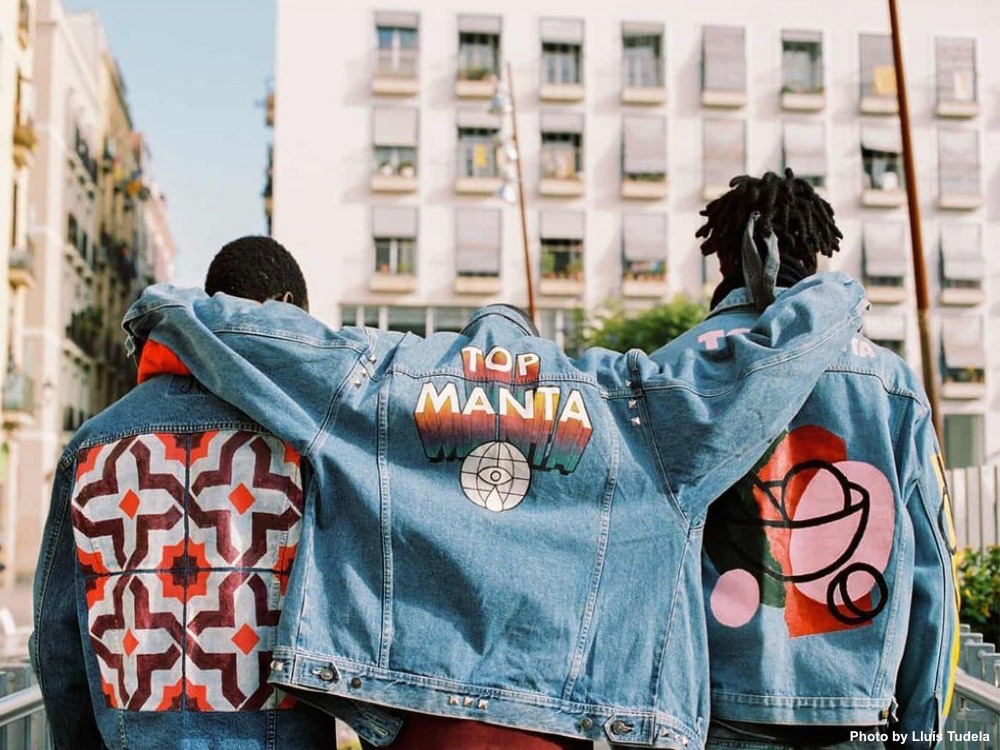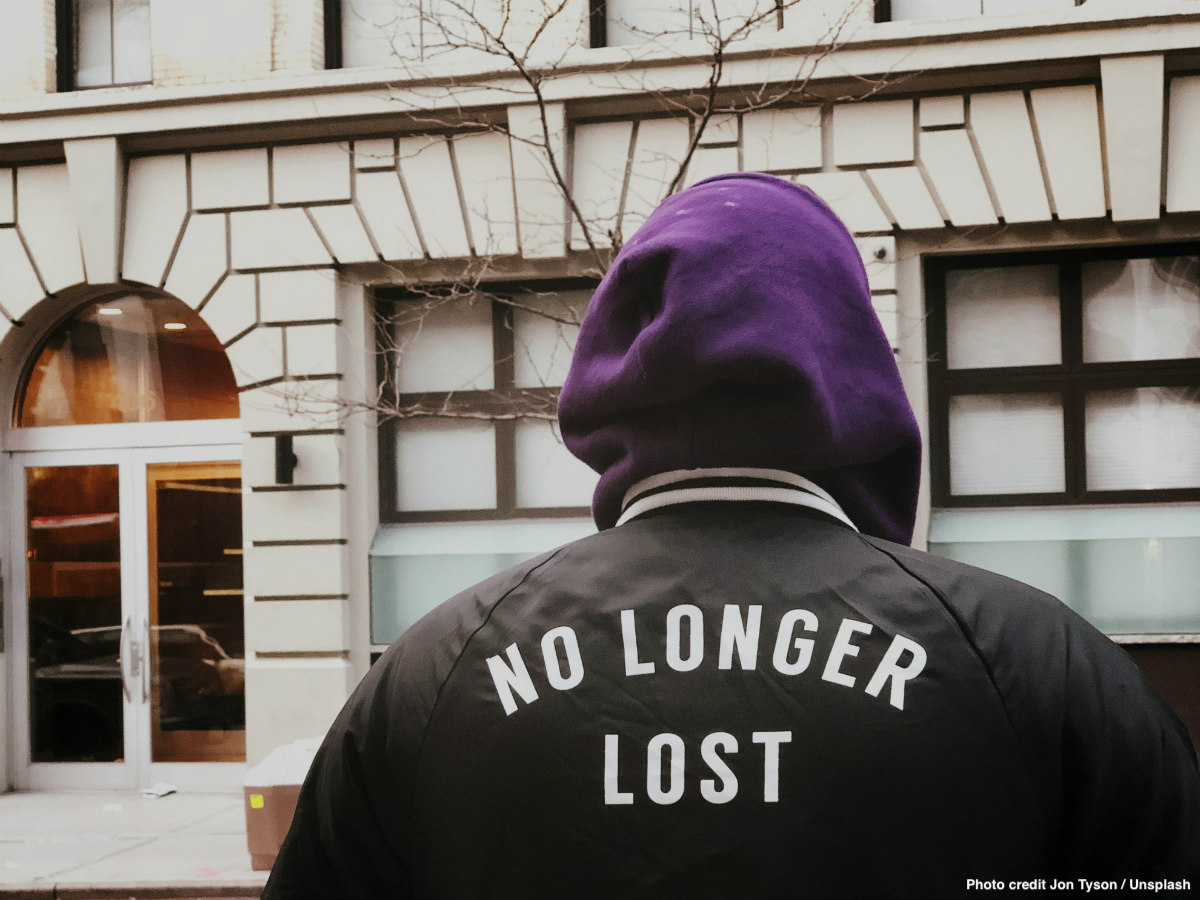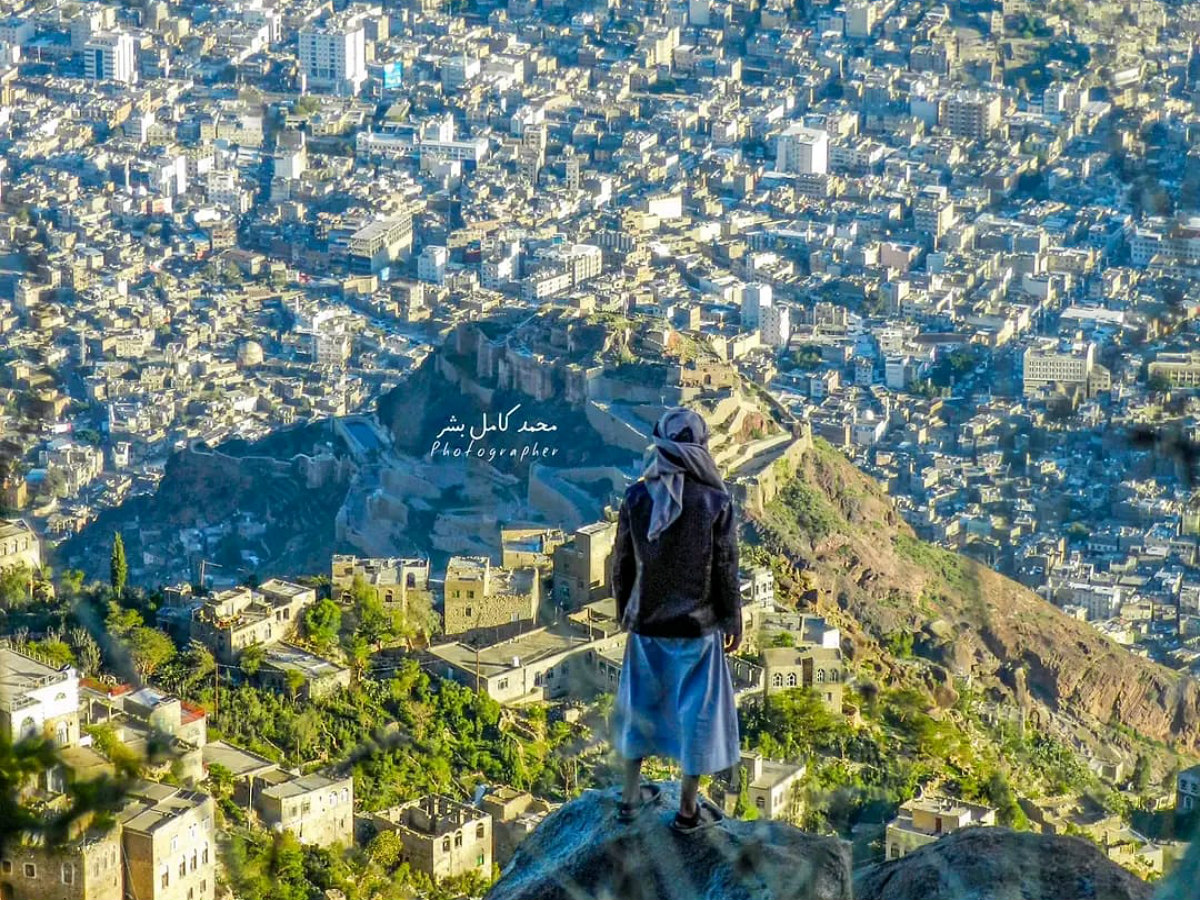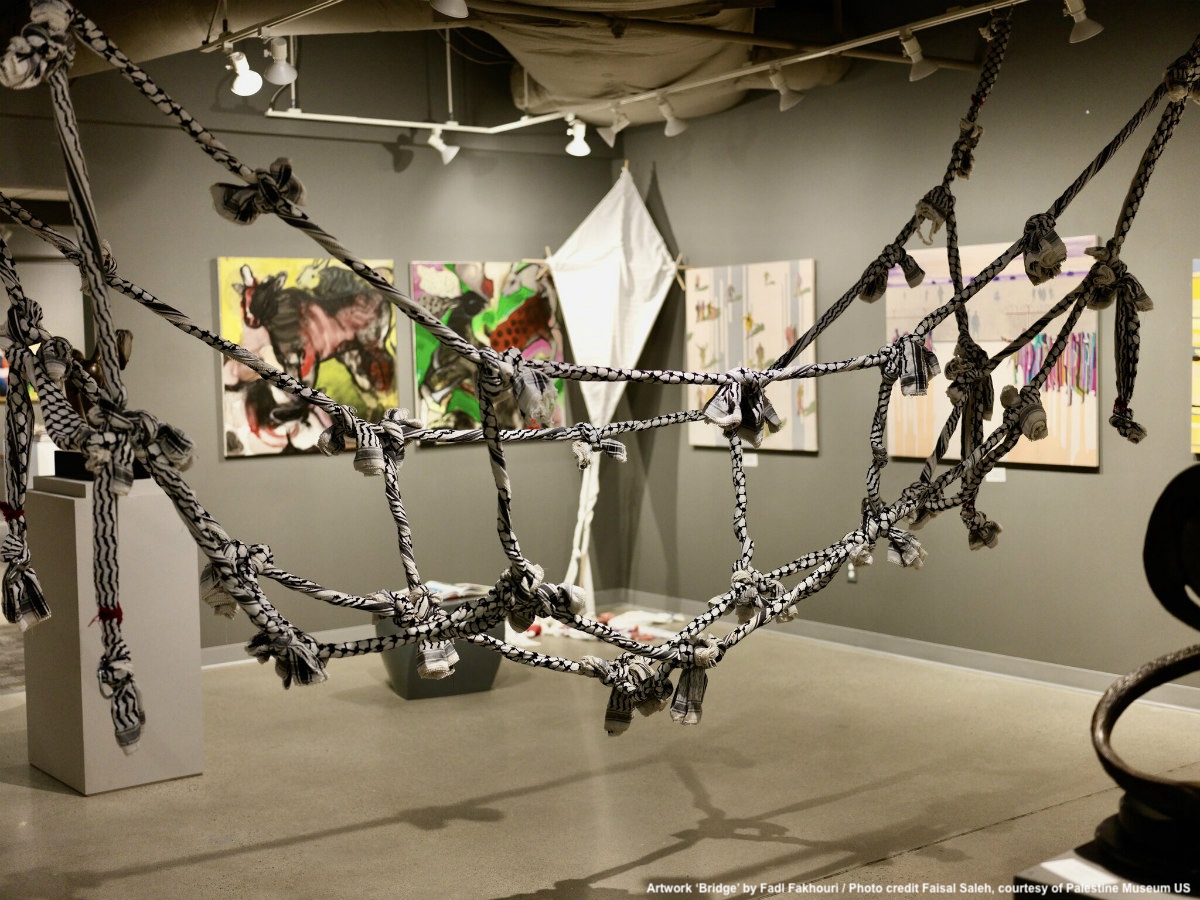At this year’s Venice Film Festival a radiant Pedro Almodóvar was standing on the red carpet to present his short film ‘The human voice’. He was wearing a black mask made in Barcelona by Top Manta with a tiny logo resembling a boat. This was not a regular mask, the well-known Spanish film director was taking a public stance on the defense of immigrants’ rights in Spain and giving a voice to a community, which has been silenced and stigmatized for too long. But who is behind Top Manta?
Papalae, Lamine, Mouhamet, Modou, Mansour and Aziz, among others, were undocumented immigrants with no job opportunities in sight and illegally selling on the streets of Barcelona. After years of being singled out and persecuted by the police, they have come up with an idea to defend their identity and belonging to the city.
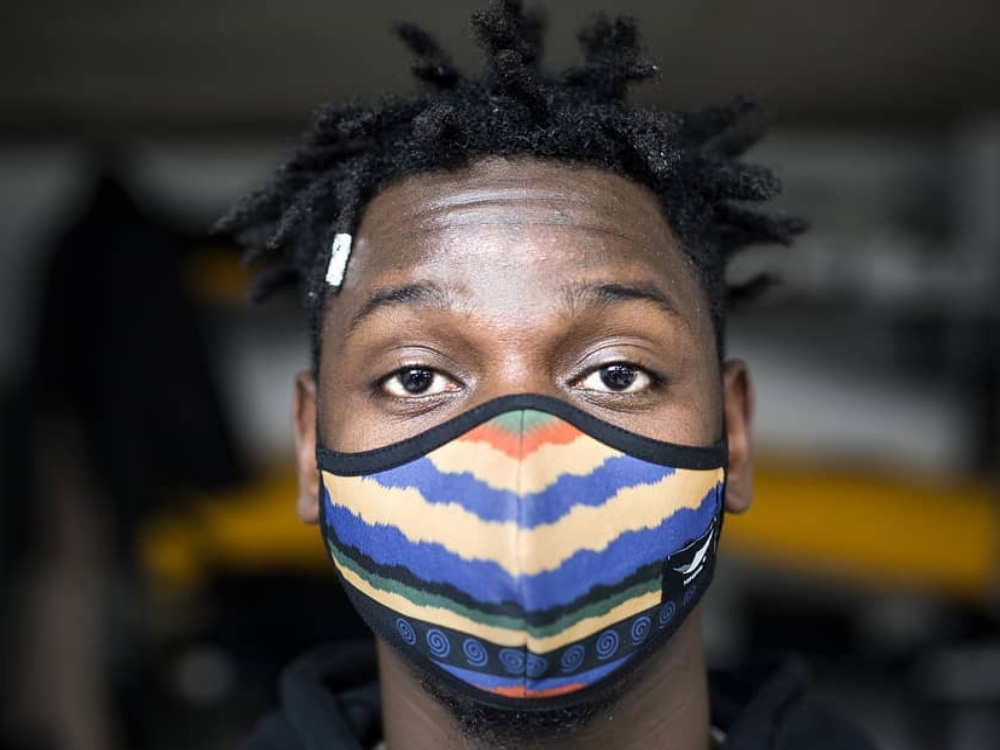
In 2015 they started producing t-shirts and sweaters using skills available in their community and selling them under their own brand. Thanks to a crowdfunding campaign they started up the screen printing workshop, a clothing collection and opened a store in the Raval neighborhood. And so a collective, simple, rebellious and dignified brand called Top Manta was born in Barcelona to take illegal street vendors off the streets.
In addition to the Top Manta social enterprise in Barcelona, we created the association Popular Union of Street Vendors to fight for our rights without having a political party or an NGO behind us. We seek recognition from society more than from institutions, explains Lamine, the brand’s spokesperson.
He came to Spain through the Canary Islands in 2006 crossing the sea in a ‘cayuco’, a light boat often overloaded with people trying to reach Europe. After a long and risky journey illegally smuggled through borders and crossing the sea, African immigrants usually face the blank reality of little opportunities.
With no other option, many become street vendors and earn a living selling on the streets despite the continuous raids by the police. It is a mouse-and-cat game. Immigrants need to prove three years of residency in an apartment with rent and one year of paid employment in order to apply for citizenship. This means that they have to navigate the streets for at least three years without getting caught by the police. Lamine, who got his papers after 13 years in Barcelona, is living proof of an administrative labyrinth.
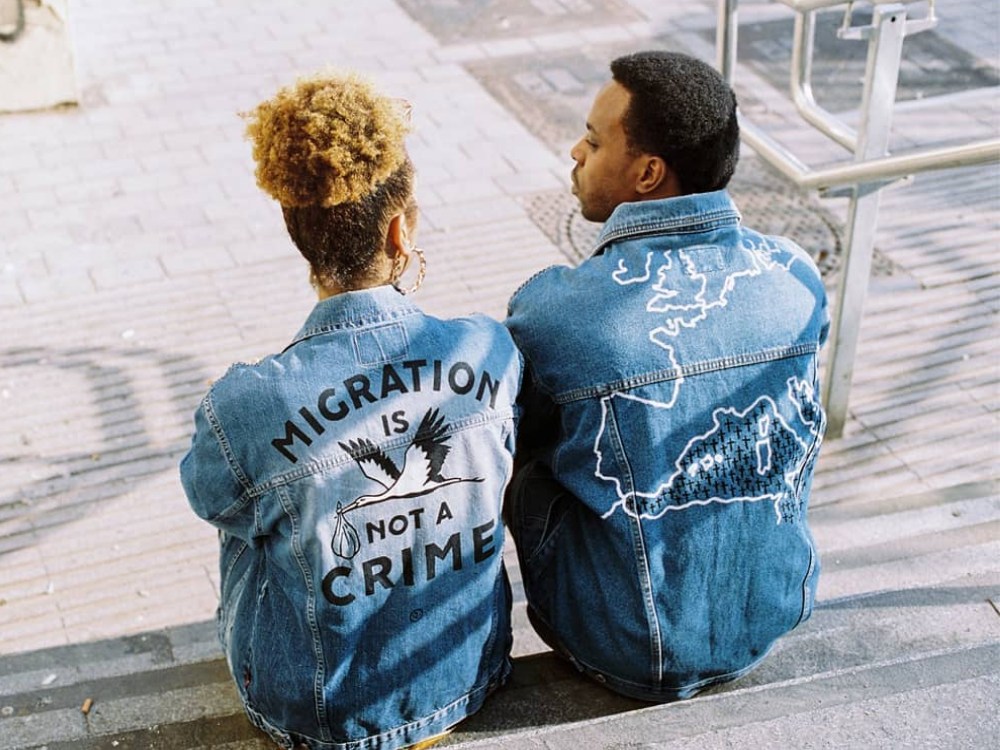
Spain began receiving massive groups of people from Sub Saharan Africa in the late nineties. At the beginning they used to sell pirated CDs of top music lists until the Copyright authorities were at odds with them and pushed for a law to punish the illegal sale. Nowadays they bargain in the streets with copycats of premium brands ‘on the blanket’. If you have been to Barcelona before, this image might be familiar to you. The expression basically refers to a tool made by these vendors to easily grab everything and run for it when a police patrol comes along. Blanket translates into ‘manta’ in Spanish and Top Manta is the term that Spaniards and the media started using to describe their activity.
But this label dehumanizes, minimizes and discriminates against their community, ‘in such a way that a part of society does not consider us people, human beings’, reads their website. This is why they gave their clothing brand the name Top Manta and use it to their own benefit: to dignify it and change its negative gaze towards a group that has been wrongly considered criminal and violent or simply not part of society.
Now when you google Top Manta you get a fashion brand instead of a negative image of our community. That is our greatest achievement, says Lamine proudly.
As an African immigrant, explains Lamine, once you step on European soil you have already lost. What you have achieved in your country of origin doesn’t count. Not only illegality but society brings you down to a position where you feel you don’t belong and from where it is difficult to come out. But Lamine and others like himself also have ambitions. Instead of enduring a deadlocked situation, they used a network woven through years, many of them knew each other from the street, to vindicate their rights.
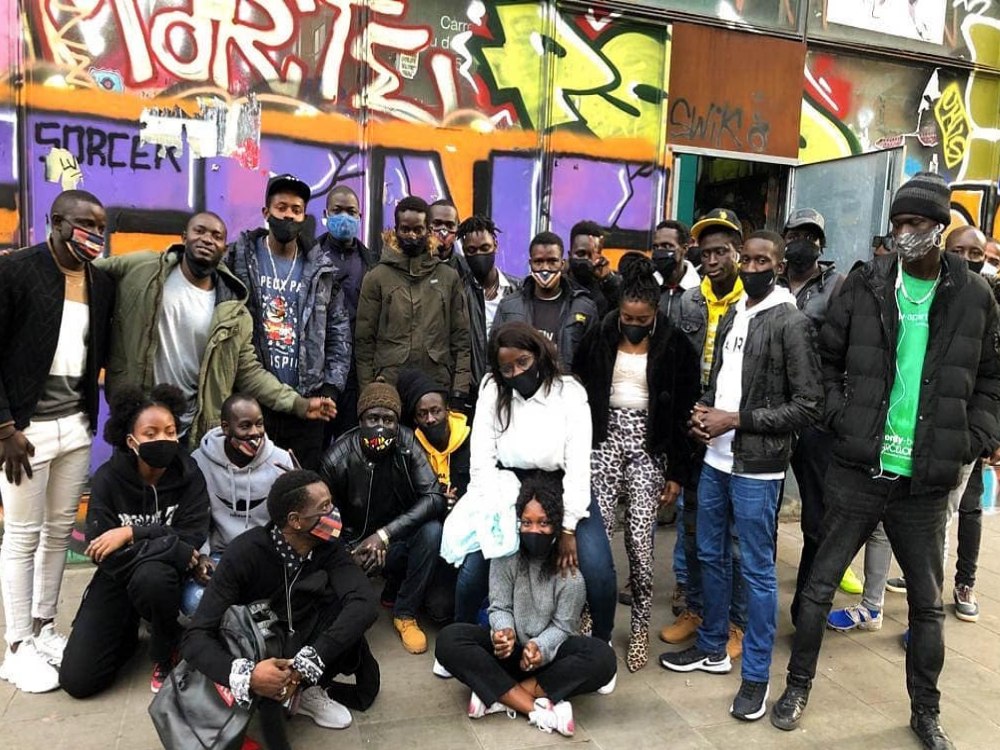
Top Manta is much more than just a clothing brand for t-shirts and sweaters made in Barcelona. The brand has transformed the meaning of the pejorative term and has dignified it. Their association Popular Union of Street Vendors serves as a tool for social inclusion helping members to regularize their situation in Spain. The union is not an ideology or declaration of principles, it explains a life struggle for justice, dignity and a better future, a request many locals in Barcelona can identify with.
In fact Barcelonians proudly shouted Refugees Welcome on the streets when the refugee crisis overwhelmed Europe and pictures of children drowning in the Mediterranean Sea circulated around the world. Yet it took a fashion brand to draw attention to immigrants in similar circumstances next door, in their city, and the neglect and contempt by governments, and municipalities that they suffer.
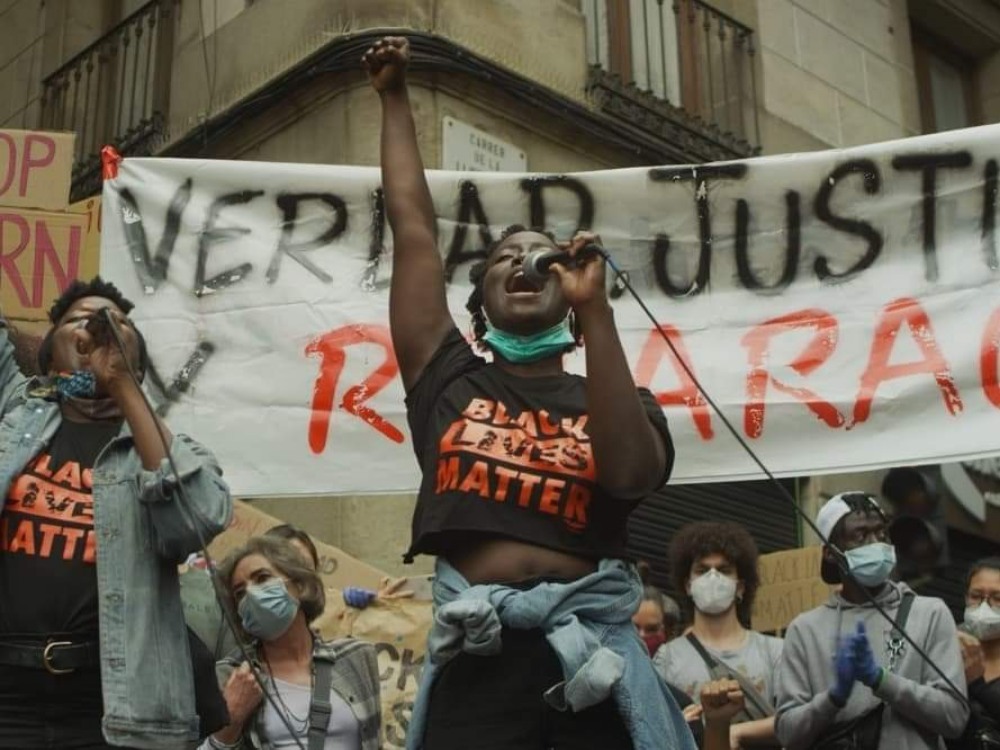
Fortunately the social project Top Manta is changing people’s perception of their community. Urban dwellers in Barcelona and beyond want to wear a brand that denounces racism, persecution and punishment, which its own creators experienced. Last winter members of the creative industry in Barcelona and artists collaborated on some of the designs of Top Manta after they were approached by them. This experience has showcased the human capital available in a city to work out its own challenges.
Towards the end of our conversation I asked Lamine what he thinks the solution is to deter people from Africa from embarking on a dangerous journey without a guarantee of opportunities at their destiny.
Stop exploiting Africa and let us choose the leaders we want. Africa is not a continent, it is a paradise with almost everything, community, culture and natural resources. Why would people like to leave it?, claims Lamine.
‘As you surely know, fishing is very important in Senegal. We all grew up watching boats go fishing every morning. When we were young, we followed the family trade and became fishermen, but little by little the fish became scarce: the boats returned empty, the market closed and our favorite dish became something difficult to pay and we started to go hungry’.
‘The corrupt government of Senegal sold our sea to international multinationals, letting them use bombs and fishing nets that destroy everything. They stole our fish, polluted our sea, broke our economy and forced us to abandon our homes. This is the system that condemned us to be Top Manta. Our clothes tell our story’.
